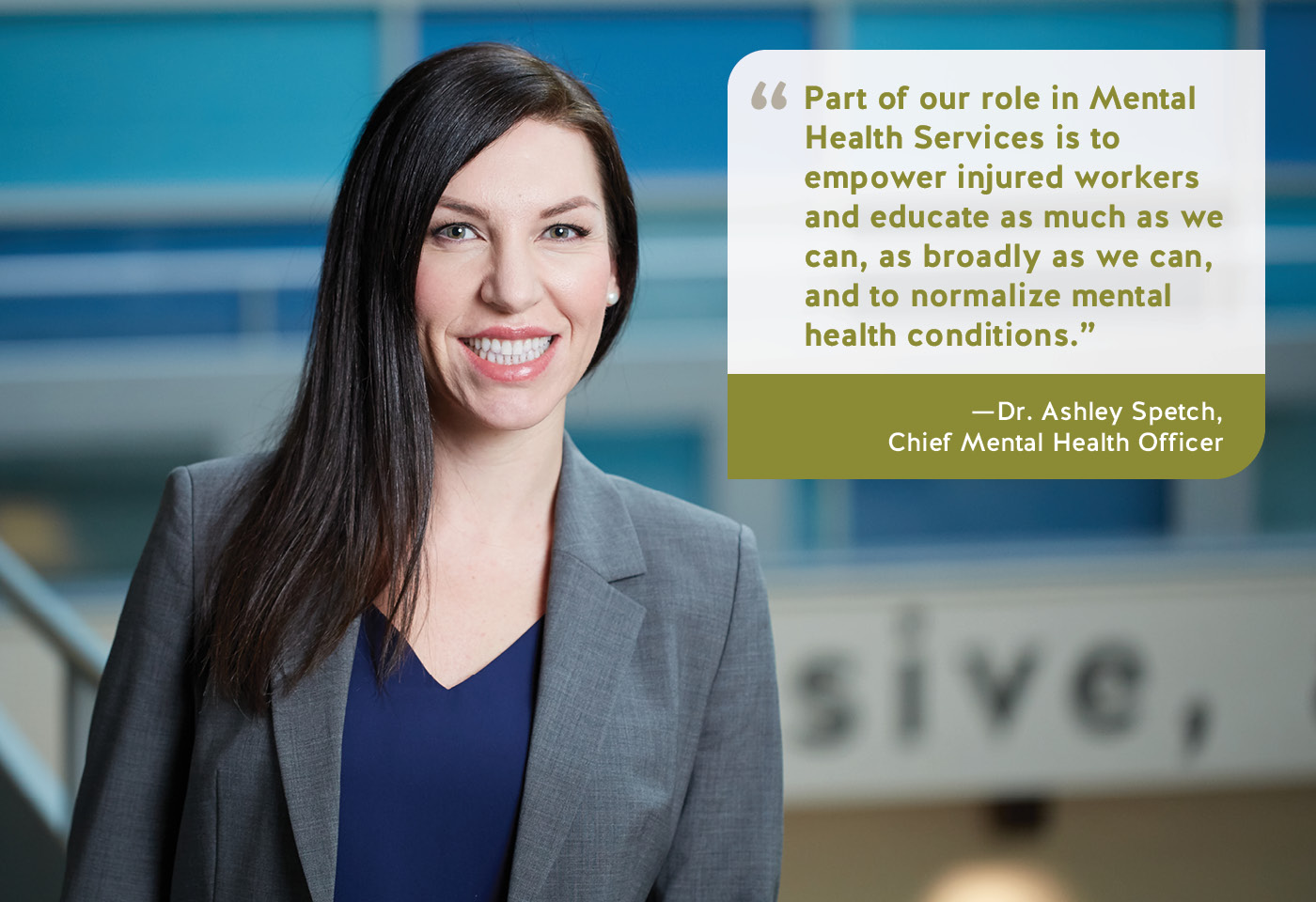Interdisciplinary teams support a proactive approach to mental health in the workplace
A career with a difference
Since joining WorkSafeBC as chief mental health officer (CMHO) in 2019 — the first position of its kind in any workers’ compensation board in the country — Dr. Ashley Spetch has been leading the development of an evidence-based strategy to support B.C. workers affected by psychological injury.
Dr. Spetch oversees the Mental Health Services team at WorkSafeBC, a team whose goal is to help improve the recovery and return-to-work outcomes for injured workers with mental health claims.
“Our role is to support workers to minimize the impact of their injury and support them in a seamless return to function in life and work,” says Dr. Spetch, whose team includes staff with mental health clinical expertise, including psychologists and mental health specialists. “Part of our role in Mental Health Services is to empower injured workers and educate as much as we can, as broadly as we can, and to normalize mental health conditions.”
That focus on education contributes to WorkSafeBC supporting employers with a proactive approach to mental health in the workplace. “The work my team does contributes to bringing more awareness and acceptance, and less stigma on the topic of mental health in workplaces in British Columbia,” says Dr. Spetch.
Psychology advisor role
As an integral part of an interdisciplinary team working in the community, psychology advisors provide mental health guidance and expertise to a range of professionals, including case management teams.
While psychology advisors don’t work directly with workers, they collaborate closely with colleagues who do. “Psychology advisors have a unique opportunity to work with an interdisciplinary team and collaborate with other professionals,” says Dr. Spetch. That collaboration — with everyone focused on a worker’s care — includes community GPs, mental health specialists, the rest of their psychology advisor team, the case manager, and the vocational rehabilitation experts, as well as community psychiatrists and community psychologists.
“An advisor is not alone in supporting a worker, which is sometimes a feeling psychologists can have in private practice,” she says. “Here, you're part of a highly engaged and very diverse team, all focused on supporting the worker.”
What the work looks like
“Our psychologists are often working to bridge the gap between a worker’s claim and the empirically supported best practice,” says Dr. Spetch, “so in unique and complex cases we’re able to do literature reviews and share the evidence with the team to determine if it’s something that’s in the best interests of the worker’s recovery.”
Both full-time and part-time opportunities are available. Dr. Spetch notes that part-time opportunities may appeal to professionals who wish to have the benefits of both private practice and a salaried position in a large interdisciplinary organization.
Future outlook
Dr. Spetch says she sees more opportunity to collaborate and unite the efforts of all parts of the organization including our Prevention Services team as they continue to support employers across the province in creating psychologically safe and healthy workplaces. She adds that an important goal for her department is to have complete alignment among both our internal and our external stakeholder groups when providing support for B.C. workers experiencing mental health conditions.
We’re looking for registered psychologists and recent psychology graduates to join our dynamic Mental Health Services team. You’ll be part of an interdisciplinary case-management team — helping injured workers in their recovery and safe return to work.
Learn more and apply at worksafebc.com/careers.

